
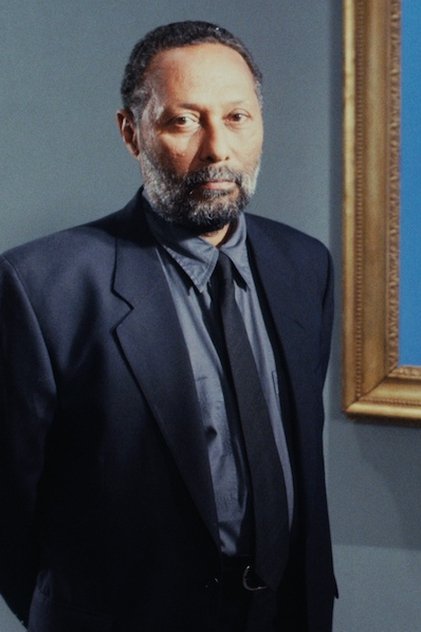
Stuart Hall
Born: February 3, 1932
Died: February 10, 2014
in Kingston, Jamaica
Died: February 10, 2014
in Kingston, Jamaica
Stuart Henry McPhail Hall (3 February 1932 – 10 February 2014) was a Jamaican-born British Marxist sociologist, cultural theorist, and political activist. In the 1950s Hall was a founder of the influential New Left Review. At Hoggart's invitation, he joined the Centre for Contemporary Cultural Studies (CCCS) at Birmingham University in 1964. Hall took over from Hoggart as acting director of the CCCS in 1968, became its director in 1972, and remained there until 1979.[3] While at the centre, Hall is credited with playing a role in expanding the scope of cultural studies to deal with race and gender, and with helping to incorporate new ideas derived from the work of French theorists such as Michel Foucault.
Hall left the centre in 1979 to become a professor of sociology at the Open University. He was President of the British Sociological Association from 1995 to 1997. He retired from the Open University in 1997. After his death in 2014, Stuart Hall was described as "one of the most influential intellectuals of the last sixty years".
Hall left the centre in 1979 to become a professor of sociology at the Open University. He was President of the British Sociological Association from 1995 to 1997. He retired from the Open University in 1997. After his death in 2014, Stuart Hall was described as "one of the most influential intellectuals of the last sixty years".
Movies for Stuart Hall...
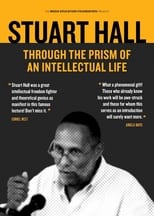
Title: Stuart Hall: Through the Prism of an Intellectual Life
Released: January 1, 2021
Type: Movie
In one of Stuart Hall's most famous lectures, Hall speaks with dazzling precision about the responsibilities of intellectuals in the face of undemocratic structures of power, injustice, racism, and inequality.


Title: White Riot
Character: Himself - Archival Material
Released: April 3, 2020
Type: Movie
Exploring how punk influenced politics in late-1970s Britain, when a group of artists united to take on the National Front, armed only with a fanzine and a love of music.

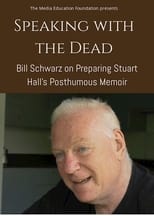
Title: Speaking with the Dead: Bill Schwarz on Preparing Stuart Hall’s Posthumous Memoir
Released: January 1, 2018
Type: Movie
When the world-renowned cultural and political theorist Stuart Hall died in 2014, he left behind an unfinished 300,000-word memoir. In this interview with MEF Executive Director Sut Jhally, Bill Schwarz talks about the challenges of preparing the final published book, detailing his negotiations and conversations with the disembodied words of an author who cherished dialogue above all else.

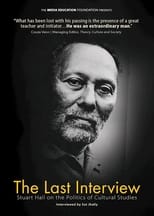
Title: The Last Interview: Stuart Hall on the Politics of Cultural Studies
Released: January 1, 2016
Type: Movie
In this interview conducted shortly before his death in 2014, Stuart Hall, one of the seminal figures in cultural studies, talks about his classic work Policing the Crisis, describes the political, symbolic, and material concerns that animated cultural studies in the 1970s, and offers a critical assessment of the field today. He then turns his attention to the always shifting terrain of race and identity in the United States and Britain, offering fascinating cultural and political insights into the presidency of Barack Obama and the 2012 Olympics in London. While Hall was physically ill for much of his later life, this final interview provides powerful testimony that his formidable intellect, sense of humor, and willingness to engage with the gritty realities of politics and power never deserted him. An absolutely essential resource for anyone interested in cultural studies.

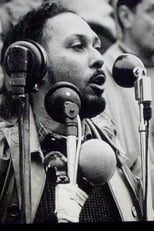
Title: The Unfinished Conversation
Character: himself
Released: October 26, 2013
Type: Movie
Through juxtaposing and layering archival footage with text, music and photographs, The Unfinished Conversation crosses the memory landscape of Stuart Hall, the Jamaican-born British cultural theorist, to reflect on the nature and complexities of memory and identity.

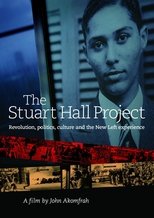
Title: The Stuart Hall Project
Released: January 18, 2013
Type: Movie
A person’s culture is something that is often described as fixed or defined and rooted in a particular region, nation, or state. Stuart Hall, one of the most preeminent intellectuals on the Left in Britain, updates this definition as he eloquently theorizes that cultural identity is fluid—always morphing and stretching toward possibility but also constantly experiencing nostalgia for a past that can never be revisited

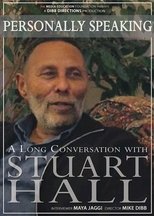
Title: Personally Speaking: A Long Conversation with Stuart Hall
Released: January 1, 2009
Type: Movie
In this stimulating and eloquent four-hour interview, conducted by the literary journalist Maya Jaggi and directed by Mike Dibb, Hall reflects on his life and career, talking personally and in depth about the trajectory of his work and how it has intersected with broader political movements. In a conversation both intimate and sweeping in scope, Hall describes his migration from Jamaica to England, his immersion in left-wing politics in London, the influence of Raymond Williams and E.P. Thompson on the evolution of his thought, and the context within which the early classic texts of cultural studies were written. Hall also shares his pessimism about the economic recession and his optimism about Barack Obama's victory. Future analysis of Hall's work, and of cultural studies in general, will need to take account of this fascinating and indispensable first-person account of his life and ideas.

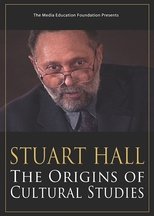
Title: Stuart Hall: The Origins of Cultural Studies
Released: January 1, 2006
Type: Movie
In this re-mastered lecture from 1989, Stuart Hall provides an extraordinarily clear summary of the origins of cultural studies. Hall discusses the founding of cultural studies at the University of Birmingham, the field's baseline concern with issues of symbolic representation and power, and how cultural studies ultimately gained an institutional foothold at the "frontiers of intellectual and academic life by testing the fine line between intellectual rigor and social relevance." An excellent introduction to Hall's work, and to the broader social, political, and economic concerns that have shaped cultural studies.

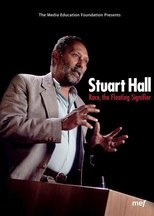
Title: Stuart Hall: Race, The Floating Signifier
Character: Himself
Released: January 1, 1997
Type: Movie
Stuart Hall offers an accessible and clarifying analysis of the social construction of race and racial difference. He explores how variations in people's appearances come to be mistaken for essential differences. He traces how these misinterpretations function both to express and to reproduce dominant power relations. And he argues for more rigorous engagements with identity, representation, and contingency capable of acknowledging and respecting difference without essentializing it. An ideal introduction to how cultural studies intervenes in debates about race, representation, identity, and power.

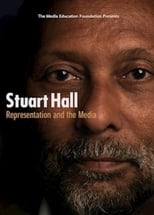
Title: Stuart Hall: Representation & the Media
Character: Himself
Released: January 1, 1997
Type: Movie
Cultural theorist Stuart Hall offers an extended meditation on representation. Moving beyond the accuracy or inaccuracy of specific representations, Hall argues that the process of representation itself constitutes the very world it aims to represent, and explores how the shared language of a culture, its signs and images, provides a conceptual roadmap that gives meaning to the world rather than simply reflecting it. Hall's concern throughout is the centrality of culture to the shaping of our collective perceptions, and how the dynamics of media representation reproduce forms of symbolic power.

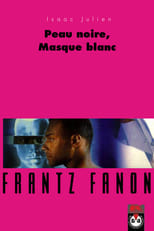
Title: Frantz Fanon: Black Skin, White Mask
Character: Himself
Released: October 9, 1996
Type: Movie
Explores the life and work of the psychoanalytic theorist and activist Frantz Fanon who was born in Martinique, educated in Paris and worked in Algeria. Examines Fanon's theories of identity and race, and traces his involvement in the anti-colonial struggle in Algeria and throughout the world.

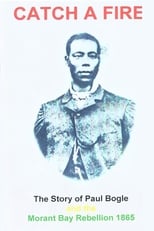
Title: Catch a Fire
Character: Self
Released: January 15, 1996
Type: Movie
This award winning drama/doc tells the story of Paul Bogle, leader of the Morant Bay Rebellion 1865. This rebellion had a major impact on attitudes to race and empire in Victorian Britain, still present today.

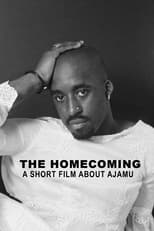
Title: The Homecoming: A Short Film About Ajamu
Character: Himself
Released: January 5, 1996
Type: Movie
Queer activist and artist Ajamu prepares to leave Brixton for an exhibition of his work in his hometown, Huddersfield.


Title: Black and White in Colour
Character: Narrator / Himself
Released: June 27, 1992
Type: Movie
A two part documentary that details the contribution of black and Asian people to television history from the birth of television in 1936 to 1992. Interviewees include: Pearl Connor, Thomas Baptiste, Lenny Henry, Norman Beaton, Horace Ové, Carmen Munroe, and Stuart Hall.

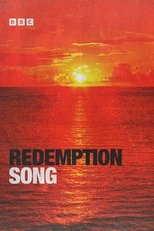
Title: Redemption Song
Character: Presenter / Self
Released: June 30, 1991
Type: TV
Jamaican-born Stuart Hall looks at the history of the Caribbean islands through interviews with modern inhabitants.

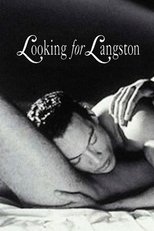
Title: Looking for Langston
Character: British voice (voice)
Released: October 31, 1989
Type: Movie
A black and white, fantasy-like recreation of high-society gay men during the Harlem Renaissance, with archival footage and photographs intercut with a story. A wake is going on, with mourners gathered around a coffin. Downstairs is an elegant bar where tuxedoed men dance and talk. One of them has a dream in which he comes upon Beauty, who seems to reject him, although when he awakes, Beauty is sleeping beside him. His story and his visits to the jazz and dance club are framed by voices reading from the poetry and essays of Hughes and others. The text is rarely explicit, but the freedom of gay Black men in the 1920s in Harlem is suggested and celebrated visually.

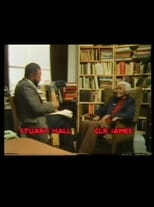
Title: CLR James Talking to Stuart Hall
Character: Himself
Released: January 1, 1984
Type: Movie
Cyril Lionel Robert James (1901-1989) was a historian, journalist and contributor to Marxist thought. Stuart Hall was able to interview him for Channel 4 in the UK . The interview discusses his thoughts on revolution, socialism, and politics. His involvement in activism lasted decades. Born in Trinidad, much of his life was spent in the UK. C.R.L James became a teacher and notably taught Eric Williams. Williams went on to lead Trinidad and Tabago to independence. C.L.R. James also wrote fiction and about cricket. During his youth he did play the sport and wrote Beyond a Boundary (1963) describing cricket’s cultural significance. One of his favorite novels was Vanity Fair. This novel followed the lives of Becky Sharp and Amelia Sedley during the Napoleonic Wars. James was a figure in the Pan-African movement and the anti-colonial freedom struggle. What tends to be ignored is his concern about class exploitation.


Title: The Spectre of Marxism
Character: Self
Released: October 15, 1983
Type: Movie
The impact of Marx on the 20th century has been all-pervasive and world-wide. This program looks at the man, at the roots of his philosophy, at the causes and explanations of his philosophical development, and at its most direct outcome: the failed Soviet Union.

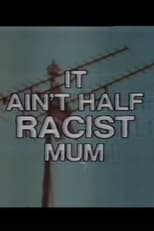
Title: It Ain’t Half Racist, Mum
Character: Himself
Released: March 1, 1979
Type: Movie
Academic and activist Stuart Hall and actor and activist Maggie Steed present a rigorous deconstruction of the racism - both explicit and more insidious in its subtlety - of the British media from within.


Title: Breaking Point – The Sus Law Controversy
Character: Himself
Released: January 1, 1978
Type: Movie
The use of an old Victorian law of ‘being a suspicious person’ commonly known as ‘sus’ was used against young black peoplein the mid 70’s in the UK. Interviews include Rudy Narrayan, Stuart Hall and Paul Boeteng. Breaking Point is the first documentary directed by a black director for mainstream British Television.
